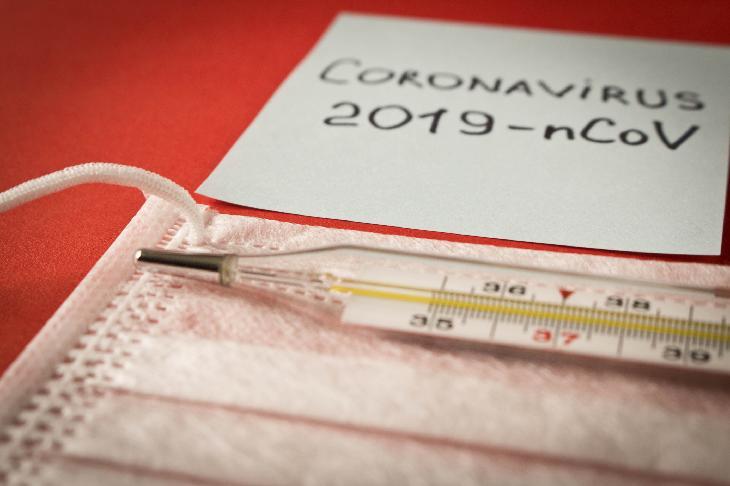
2020 is a year that will linger long in the memory of many. That is thanks to one thing—the COVID-19 pandemic. The novel coronavirus has dominated global news coverage with countries publishing grim statistics daily, showing the rising death toll.
The pandemic has rattled the most advanced countries, stretched health facilities, and forced governments to develop new rules on how society functions to stem the spread. These rules often involved stricter guidelines on public gatherings and limiting movement to only essential activity.
Nevertheless, the existence of the COVID-19 pandemic doesn’t suspend the likelihood of other life hazards. Personal injuries can and do occur—from car crashes to accidental falls. When you experience a personal injury, it’s critical that you engage the right lawyer, such as Attorney Brian White & Associates. You must also be well aware of what you can do while keeping yourself safe from the risk of COVID-19 infection.
Here’s a look at five key areas of personal injury concern and how to address them in the context of a global pandemic.
1. Limited or Delayed Availability of Police Officers
In the event of a car accident that causes personal injury, police officers and emergency responders may not be at the scene as quickly as they ordinarily would. Some counties have mandated limited police availability for non-urgent situations. Yet, the injured would want to obtain a police report at the scene. The report is a crucial component of the insurance claim and any personal injury lawsuit.
In the absence or delayed arrival of police officers, the injured party should document how the accident happened, capture photos or videos of the scene, and take witness contacts and statements. If the injury makes it difficult for them to do this on their own, they should mandate someone they are with or call a third party who can come over quickly and do the evidence-gathering on their behalf.
2. Harnessing Opportunities for Telehealth
Injured persons would be apprehensive about visiting medical facilities during a pandemic. It’s a rational fear. Hospitals and clinics are a high-risk venue, given that people with COVID-19 symptoms will likely head to these places first. Fortunately, a growing number of health care providers offer telehealth as a means of continuing the treatment and monitoring of patients while adhering to social distancing.
Of course, visiting the emergency room following a personal injury may be inevitable. Still, injured individuals could discuss with their doctor if some or all subsequent appointments can be conducted remotely via the phone, email, or video call. This protects both the patient and the healthcare provider from potential COVID-19 exposure.
3. Maintaining Your Own Medical Records
Movement restrictions, the repurposing of certain medical facilities as COVID-19 treatment centers, the enlisting of doctors in the battle against the pandemic, and the death of healthcare professionals infected by the virus. These are the unusual circumstances that can make a patient’s medical records inaccessible when they are needed.
Patients have to improvise by building and managing their medical history, especially the health data relevant to personal injury. This may mean keeping a detailed and dated journal showing the onset of symptoms, dates of diagnoses, the evolution of symptoms, procedures are undergone, treatment prescribed, and dates of next follow-up. The medical records are important for the continuity of the patient’s treatment and pursuing any personal injury lawsuit.
4. Rejecting Low-Ball Settlement Offers
COVID-19 triggered an unprecedented unemployment crisis. Tens of millions lost their primary source of income and have to grapple with the bare necessities. There’s anxiety, anguish, uncertainty, and despair. Insurance companies recognize the spiraling desperation. As profit-making entities, they will capitalize on the situation in personal injury settlement negotiations.
Insurers understand that, amidst the chaos, victims will be more willing to accept an otherwise undesirable settlement offer. It’s, therefore, crucial that personal injury victims remain resolute and approach the negotiation in the same way they would under less distressing circumstances. They should work with their attorney to extract fair compensation.
5. With Courthouses Closed, Videoconferencing May Be Available
Many courthouses have closed their doors to enforce social distancing. Unfortunately, this has partially or completely paralyzed personal injury legal proceedings. Some courts are allowing video conferencing as an alternative available to a limited set of cases. For persons contemplating something low priority, such as how to fight a traffic ticket in the courts, the courts are unlikely to have time for that.
Personal injury victims should liaise with their attorney to determine whether this option is available and whether the courts would be willing to process their case via this avenue. There’s no guarantee their request will be accepted, though. Therefore, they have to be ready to wait it out until relative normalcy resumes.
In less dramatic times, personal injury can abruptly throw you into new life realities, including hampered mobility, financial distress, and months of recovery. Pandemics like COVID-19 only further compound these obstacles. Fortunately, there are still ways you can safeguard your medical, legal, and financial interests by taking requisite actions around these five areas.


